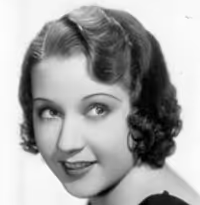My Fair Lady Ending
Lorri3
Swing Joined: 2/13/19
#100My Fair Lady Ending
Posted: 2/13/19 at 7:22pmJust saw my fair lady at Lincoln center and loved it! But was confused by the ending. When Eliza came back that last time to his house what did Higgins say to her before she left for good (I couldn’t hear it). She said it right after she put his hand on his cheek. And why did she even come back to his house one more time?
#101My Fair Lady Ending
Posted: 3/4/19 at 12:34pm
im super late. but JUST saw this last week. And I loved it. I thought the ending was great. I took it as, she showed up to say a final goodbye before moving on with her life. I don't think she went back to Freddy, since it was clear her didn't understand her (from when he went back to her street with him).
Another user said they interpreted it as her final visit just being his imagination, which I kind of loved too.
#102My Fair Lady Ending
Posted: 3/4/19 at 12:39pmEvery time I see this show I now just want to close my eyes so I don’t have to watch that ridiculous last minute. Sher is fantastic but this is one of the dumbest decisions a director has ever made.
ScottyDoesn'tKnow2
Broadway Legend Joined: 1/22/14
#103My Fair Lady Ending
Posted: 3/4/19 at 12:47pm
Conversely, this is the ONLY ending I like now even though this is the most I like Eliza and Henry together. Especially with the way Ambrose played it opposite Hadden-Paton. I like what Donica did with Freddy during Eliza's return to Covent Garden and how he was listening it and having light bulb moments and deciding he still wanted to be with Eliza. The second time I saw it, I saw far stage left so I didn't get to see much of it, but when I saw it orchestra center the first time around, I saw it all.
#104My Fair Lady Ending
Posted: 3/4/19 at 1:21pm
I love the new ending. I went to the showing without knowing the change. When "I've Grown Accustomed to Her Face" started, I thought to myself, they are going to justify his cold-hearted, women hating action with just one song, it's clearly a man's work. Then the ending happened, I was really surprised, I had to talk to my friend after to confirm that it was indeed what I thought I saw.
Funny thing is, when I first watched the movie I was about 20 years old, and I absolutely loved the movie's ending. I thought the love from Higgins is so subtle and romantic. I guess I have grown up since... And I am happy to see a show that is also grown up.
#105My Fair Lady Ending
Posted: 3/4/19 at 3:35pm
^ Agree completely, the change was a wonderful, fresh take.
#106My Fair Lady Ending
Posted: 3/4/19 at 6:21pm
Just as an FYI...
My Fair Lady is on TCM tomorrow (Tuesday, March 5th) at 5pm. I’ve got my TV set to record it. I’ve never seen Pygmalion until yesterday and hated the way it ended. It was also very odd seeing the 1938 movie and inserting music and songs from the Lincoln Center production still in my head at all the parts where none existed.
#107My Fair Lady Ending
Posted: 3/5/19 at 7:04am
If you haven’t seen this, or want to see it again, don’t wait too long. It fell below the 70 percent of capacity mark. It was a terrible week for Broadway in general, but still.... I wonder if they planned to broadcast one of the final performances as with South Pacific. It was said that a broadcast of King and I was planned but the show closed too abruptly to permit it.
Instead of extending Benanti I wish that Sher had dropped a fresh, new genuinely young Eliza into the role. Sher seems to have lost interest, with his triumphant trip to London and all the other work on his calendar. Who is that directing Mockingbird?
The simple take on the ending that Eliza is just saying goodbye to Higgins with a show of warmth is certainly a good and valid one. Only here the prose ending that Shaw tacked onto his play does cause one to hesitate. Now that Liza is an independent woman, what exactly does she do? “Where am I to go and what am I to do?”
The only people she knows in her new identity are Higgins’ mother, Colonel Pickering and Freddy. She has no skills with which to support herself. Marriage, to someone not yet identified, seems the most likely course.
This turned my thoughts back to the beginning. Eliza who sold flowers had no friends, no family except for her father, a man she took no delight in encountering.
Although I’m but an aging male who is out of it as far as current popular culture goes, and although I often must walk on eggshells to avoid offending anyone, it is a pleasure to discuss these old mid 20th Century American works of art with those that care about them so much. I wonder if they will last as long as, say Mozart’s operas. I may as well wonder if our civilization will last that much longer.
That was horribly sentimental.
#108My Fair Lady Ending
Posted: 3/5/19 at 7:23am
I think Eliza ends up with Mrs. Pearce and lives happily ever after.
#109My Fair Lady Ending
Posted: 3/5/19 at 3:41pm
I see Sher has STILL ignored my originally-submitted alternate ending, in which instead of walking away when Higgins asks for his slippers, Eliza jumps in the air and does a spin kick that decapitates Higgins, before the entire cast takes a group bow to "Battle Without Honor or Humanity" by HOTEI.
Then again, Geoge Bernard Shaw continues to ignore my texts that "Pygmalion" needs more of the titular half-pig/half-chameleon monster, and that audiences are going to demand to see the creature onstage, rather than simply lurking unseen n the background.
RoyiG
Swing Joined: 9/4/14
#110My Fair Lady Ending
Posted: 3/5/19 at 3:50pm
darquegk said: "I see Sher has STILL ignored my originally-submitted alternate ending, in which instead of walking away when Higgins asks for his slippers, Eliza jumps in the air and does a spin kick that decapitates Higgins, before the entire cast takes a group bow to "Battle Without Honor or Humanity" by HOTEI.
Then again, Geoge Bernard Shaw continues to ignore my texts that "Pygmalion" needs more of the titular half-pig/half-chameleon monster, and that audiences are going to demand to see the creature onstage, rather than simply lurking unseen n the background."
This is truly inspired^
#111My Fair Lady Ending
Posted: 3/7/19 at 9:28pmYou should see my notes for Artie Miller on punching up “Crucible.”
#112My Fair Lady Ending
Posted: 3/7/19 at 10:07pm
PYGMALION is the British version of the story: class and tradition conquer all.
MY FAIR LADY is the American version: love and personal aspiration conquer all.
Changing the ending of either one is a travesty. I love Ambrose on the album, but I don't need to see any production of the Sher version.
#113My Fair Lady Ending
Posted: 3/7/19 at 10:28pm
The original ending works for the time it was written and for the time it was written about. Most of us can see that and understand.
#114My Fair Lady Ending
Posted: 3/8/19 at 12:55am
I thought it was very clever of the actors to infuse mixed signals of sexuality (original cast). It made it all the more interesting.
#115My Fair Lady Ending
Posted: 3/9/19 at 2:00am
MichelleCraig said: "The original ending works for the time it was written and for the time it was written about. Most of us can see thatand understand."
As long as PRETTY WOMAN is running, the original MFL can't possibly be "out of date".
#116My Fair Lady Ending
Posted: 3/9/19 at 8:31am
Personally, I'm on tenterhooks waiting for An Officer and a Gentleman, and Top Gun.
bear88
Broadway Legend Joined: 4/26/16
#117My Fair Lady Ending
Posted: 5/28/19 at 3:15am
I had never watched any version of My Fair Lady before seeing it on our New York City trip earlier this month, so I don't have any attachment to the original musical or the original play. It was a new show for me. Laura Benanti was Eliza, and I know some people say she plays the role differently than Lauren Ambrose did, but I can only go on what I saw.
My impression of the ending largely tracks what OlBlueEyes describes as Harry Hadden-Paton's expressions and reactions during the scene. Following "I've Grown Accustomed to Her Face," which alternates between defiant pride and very grudging expressions of affection, delivered to himself, Higgins seems rather pathetic listening to the recording. When Benanti's Eliza appears and turns off the recording, they perform an awkward recreation of their own old lines. Higgins certainly doesn't make the slippers remark as a command. In fact, he delivers it in such a halting manner that it almost comes out as a question. It's practically whispered, as Sara Holdren writes in Vulture. Eliza affectionately touches his cheek, lingers a bit, then walks off the stage and up into the audience. I looked back to watch Hadden-Paton as Higgins' house recedes, and he doesn't look crushed or angry. If anything, he appears to be gazing at her in wonder.
My takeaway: She's leaving. My question: Where? Not to Freddie, whose character is underwritten but who no one seems to take seriously (even if Christian Dante White plays him in winning fashion and has a wonderful voice). "Show Me" seems to be Eliza's assessment of him. Not to Higgins, who's been a jerk the entire time despite obvious flashes of jealousy and who seems incapable of treating her with respect. The show hasn't really played as a romance anyway, and Eliza wants nothing to do with her father and can't go back to her old friends - who don't even recognize her as a lady. So her future seems uncertain, but hopeful.
My wife, who grew up on the cast recording and is perhaps more of a romantic, had a different reaction that I haven't heard elsewhere. She thought Eliza's exit was a setup, that she's captured Higgins' heart and would now start to train him to be the man she wants him to be, just as he trained her to speak like a lady. I didn't agree, but there's enough to support her theory, especially Hadden-Paton's behavior in his last song and the final scene.
Either way, Eliza emerges with a victory - and a future that's left to the imagination of the audience. What's wrong with that? From Pygmalion until now, there's been no definitive ending to this story. Even the play's original author couldn't seem to make up his mind.
I found the conclusion satisfying, and enjoyed the overall show very much. OlBlueEyes, I know you have mourned the dwindling gate receipts for the show and its impending closure. But these shows have staying power for a reason, and the revival's performance matched those of other recent Lincoln Center revivals. My wife, college-age daughter, and I all had a wonderful time.
#118My Fair Lady Ending
Posted: 5/28/19 at 4:44am
I think Eliza ends up with another woman to be quite frank. It really is the only ending that makes any sense.
#119My Fair Lady Ending
Posted: 5/28/19 at 4:54am
She doesn't leave the house. Because if she did, she would have, you know LEFT through the door in the study and you would have seen her leave his house. She does not. She clearly stays in the house, staying with him because even if it's not a romantic love, they have mutual respect and admiration for each other. She isn't leaving his life, she simply goes to another room.
Updated On: 5/28/19 at 04:54 AM#120My Fair Lady Ending
Posted: 5/28/19 at 5:26am
South Pacific raised expectations. It ran for 28 months and over 1000 performances with 23 year old near-novice Laura Osnes in the lead female role for over a year. There is a certain grandeur to the score, set in wartime. "Some Enchanted Evening," "Bali H'ai," "This Nearly Was Mine." Ben Brantley in the Times wrote, by now almost famously, "I know we're not supposed to expect perfection in this imperfect world, but I'm darned if I can find one serious flaw in this production."
I was expecting numbers almost as great for this production of My Fair Lady. I think that this production is almost equally as good a revival as was South Pacific, but it is a comedy and the songs are witty instead of grand. Without the intensity to bring tears to host Alan Alda's eyes on hearing the beginning notes of the South Pacific overture, in the Live From Lincoln Center broadcast.
I think that Shaw did us no favor when he tacked on to Pygmalion a final act in prose. We are certain that he does not want Eliza to crawl back to Higgins, yet it is he who instructs us that Eliza has nowhere to go to begin her independent life free of Higgins. His mother and the Colonel are her only friends and source of funds. Better to ignore his gratuitous and wordy dissertation. Be in agreement with Dame Diana Rigg, who said the ending was ambiguous and that was the way it should be, Let our imaginations, be they British or American, supply the ending.
#121My Fair Lady Ending
Posted: 7/10/19 at 12:07pm
One thing I feel people are ignoring is that in his introduction to the published play, when discussing the ending (which is the conclusion of his essay) Lerner says of Shaw's ending "so help me, I think he's wrong." So it's clear that Lerner wasn't just crafting an ending for "his era" or the conventions of the Broadway musical of his era. Indeed, the show broke most of them. He thought Shaw was wrong. And it's his play. It isn't a revival of Pygmalion, it's a new work based on it that only has to adhere to its own authors' (Lerner and Lowe's) goals. And the author thought Eliza leaving was wrong and staying (or, rather, coming back) was right.
For what it's worth, I have no stake in the "how dare they desecrate this masterpiece" argument. Plays will be restaged and re-evaluated, sometimes radically. Anyone who looks at what goes on with Shakespeare or opera knows better than to think this is going to stop. But I do think the results are not a production of Such and Such Work. They are Someone's Production of Such and Such Work, at a remove from the actual piece. Some people will like and be reinvigorated by changes. Some will hate them. I'd rather see My Fair Lady as it was meant to played, rather than how someone sixty years on likes it better. I'd rather see La Traviata as it was meant to be staged, too (Shakespeare is different because his society's theatrical practices were utterly different from ours--that tradition was abruptly ended when Cromwell closed the theaters; we don't really know how they were staged--we just have educated guesses--so we're on our own there).
#122My Fair Lady Ending
Posted: 7/10/19 at 4:00pm
I'd rather see My Fair Lady as it was meant to played, rather than how someone sixty years on likes it better.
I agree with much of what you write. In particular, I can't understand why some consider it "problematical" that shows like Carousel and South Pacific are revived because their characters don't always act in agreement with the social mores observed today. Characters from 100 years ago can only speak and act as they did in their time.
Are some afraid that watching them act in ways greatly discouraged now will cause people from our time to go back to those bad old ways? Far-fetched. If so, then maybe the "progress" we have made in one hundred years has not all been positive.
Have we progressed in our use of our spare time over the last 50-60 years when the major TV networks broadcast live, primetime plays such as Arthur Miller's The Crucible and live musical programs hosted by Nat King Cole and Judy Garland? In our time we have idiot "reality" shows like The Apprentice boosting an idiot to national prominence.
Anyway, you should know that Lerner lifted much of the dialogue of Act II, and almost all of the dialogue in the fierce exchanges between Eliza and Higgins, directly from the play Pygmalion or Shaw's screenplay for the 1938 film Pygmalion. This is one of the musical's great strengths, I believe.
#123My Fair Lady Ending
Posted: 7/10/19 at 6:08pm
I agree. And yeah, I was aware. I love that movie. Howard is a better Higgens than Harrison, based on their film records. But I enjoyed Ian Richardson best. Soooo glad I got to seem him in it (not in the Broadway revival; a regional production in the early '80's). And I love that they set it in the (then) 1940's present, not Edwardian England. Would love to see a modern dress production of My Fair Lady.
7thbighero
Stand-by Joined: 11/9/15
#124My Fair Lady Ending
Posted: 7/10/19 at 7:34pm
This and Oklahoma! bring up an interesting discussion on changing non verbal staging. Personally, I love the new ending, and it elevated the revival from the movie in my book. I get the argument that MFL isn’t Pygmalion, but since a majority of the text is lifted from Shaw, it’s not as drastic. Maybe Lerner’s intent in 1956 would differ from his intent today.
Changes to narratives over time are inevitable
Videos










